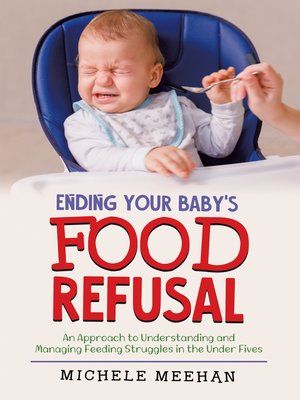Ending Your Baby's Food Refusal
ebook ∣ An Approach to Understanding and Managing Feeding Struggles in the Under Fives
By Michele Meehan

Sign up to save your library
With an OverDrive account, you can save your favorite libraries for at-a-glance information about availability. Find out more about OverDrive accounts.
Find this title in Libby, the library reading app by OverDrive.



Search for a digital library with this title
Title found at these libraries:
| Library Name | Distance |
|---|---|
| Loading... |
"Don't worry, just keep doing what you're doing!"
"She just won't eat anything, I mean anything, unless it's white!"
"No one believes my baby won't drink!"
"All babies drink, they say, but mine doesn't! What's wrong with me?"
Managing feeding problems in babies is an area fraught with anxiety, not only for parents but also for anyone involved in their care.
It's hard to survive the battle of endless days with your baby refusing all meals or feeds, let alone see any hope of change. The anxiety and worry about your child's growth and eating habits often means you're forced to keep doing the same things, hoping for a better result.
The most overwhelming report I hear from mothers is that of having been reassured that the baby is healthy and growing well, so, "Don't worry, just keep doing what you're doing."
Your baby is only looking good because of all your work and effort. In responding to your worries about your baby's feeding, it is not enough to offer reassurance alone, or simply to tell you what you should do! Ending Your Baby's Food Refusal is not about what your baby should eat, but how to change your approach to food and feeding.
This book explores why babies may not be feeding or eating well at each stage of development, based on the Ages and Stages of the Australian Child Health Record, and offers an approach to help your baby or child change behaviour.
Some sections cover short stages (the younger ages, 0–2 weeks) and others more widespread (12–18 months). You can go to the most relevant section.







